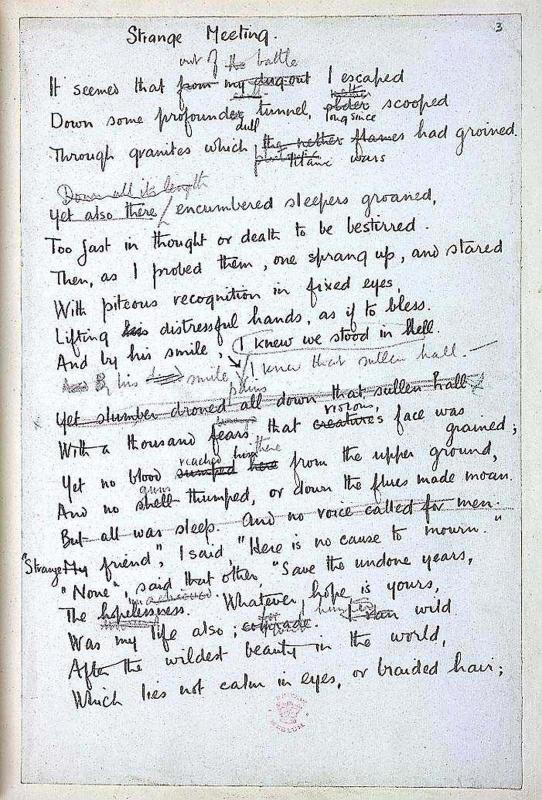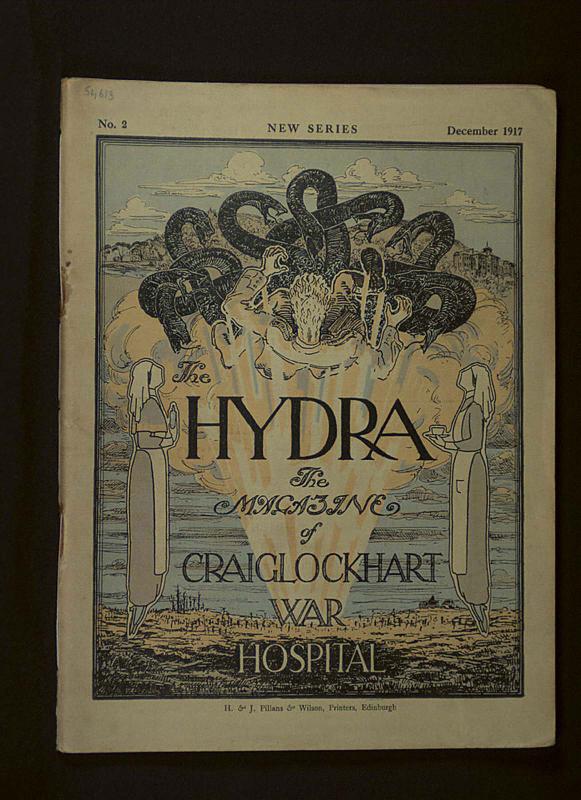Wilfred Owen, Writer, Editor
Drawing upon rhythmically experimental lyricism, metaphoric devices and other poetic techniques to present a high amount of stylised realization to his poetry, Wilfred Owen’s work presented visceral images of war and the body torn on the battlefield. Owen’s poem “Strange Meeting” tells the story of a soldier who falls into what seems to be a long trench, where he meets a soldier from the opposite side. “I am the enemy you killed, my friend” the soldier tells him. Made alike in death, the other soldier recognizes him: “I knew you in this dark: for so you frowned / Yesterday through me as you jabbed and killed” (40-42).
Owen writes of the physical body in detail, made alike and united in death with the other dead of the trench. Instead of glorifying the dead who die fighting for England, Owen juxtaposes patriotic ideals with the reality of war in “Dulce Ed Decorum Est,” drawing his title from Horace’s Odes, a shortened version of the phrase dulce et decorum est pro patria moria, Latin for “sweet and fitting it is to die for your fatherland.” Far from upright soldiers proud to die for England, Owen writes of a troop who “marched asleep. Many had lost their boots” (5). Unable to don his helmet in time, one of their number is gassed: he chokes on his own blood as the chlorine gas destroys his lungs, which Owen’s speaker describes in horrific detail: “the blood / Come gargling from the froth-corrupted lungs” (21-22). Owen ends the poem in a moment of morbid irony by reflecting on the uselessness of dying in war to further the glory of one’s country, in a meditation which contrasts this heady ideal with the reality of the First World War.
Through visceral depictions of the human impact of the First World War, paired with empathetic portraits of soldiers, Owen’s war poems display the philosophical weight of the First War, visited upon the bodies of those on the front lines.

